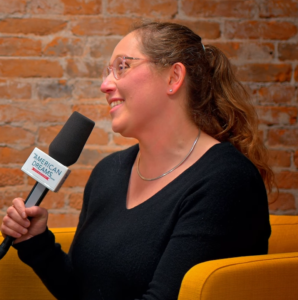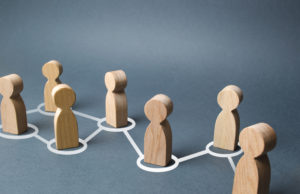Is Philanthropy Good for Capitalism?

Is Philanthropy good for capitalism?
In 2013 Zoltan J. Acs wrote the book Why Philanthropy matters. It explores the benefits of Philanthropy on the US economy; “…philanthropy as an underappreciated force in capitalism, measures its critical influence on the free-market system, and demonstrates how American philanthropy could serve as a model for the productive reinvestment of wealth in other countries.” It deals with the three primary questions of what to do with wealth: “keep it, tax it, or give it away”, and sheds a positive light on the contribution philanthropy makes to education, science and medicine.
And, serving as a compliment to the government, how capitalism actually makes it possible for the extremely successful to use philanthropy to establish institutions and programs which help those who fall between official cracks. And lastly, how philanthropy often promotes knowledge, university research and technological innovations. So yes, philanthropy is good for capitalism, and much more.
Why philanthropy?
The most intriguing aspect of philanthropy might be the motivation behind it. Why give at all? Presumably, many philanthropists started out as highly focused entrepreneurs who worked very hard and intelligently and with a great deal of skill to drive themselves to create an empire or amass a fortune. Despite competitors’ most cutthroat efforts to copy or steal ideas and employees, the typical thieving and con schemes invariably present when money is involved, and the always present opposition to momentum inherent in the status quo, they willed themselves, and others, to great success.
How does someone immersed in such a struggle turn from an “ it’s me against the world” attitude, to true compassion for others and a desire to generously help individuals they’ve likely never met, and from whom they’ll likely never receive a thank you. This is quite a transformation. It would appear that for many individuals, achieving significant wealth triggers a natural, and wonderful desire to give to the less fortunate in society. Two excellent examples would be Andrew Carnegie and John D. Rockefeller, both who believed responsibility to the less fortunate came with wealth.

Why give away money?
There are some very good, practical reasons to participate in some form of philanthropy:
-
- Tax write-offs
- Garners positive attention and good PR
- It feels good to do the right thing
- The recipient organization may have helped the donor
- With great power comes great responsibility (thank you Stan Lee)
Bill Gates, Oprah Winfrey and many others are following the lead of such distinguished examples as Mr. Carnegie, Mr. Rockefeller, Benjamin Franklin and others who gave enormous amounts to worthy causes. But philanthropy often involves large sums of money and in some cases everything, as was the case with Chuck Feeney, Andrew Carnegie and Yu Pengnian![i] One marvels at their generosity.
In a recent interview, President of Universal Giving, Pam Hawley, shared her view of philanthropy this way; “Philanthropy is about the love of people… about one’s mission in life”. When considering the many wonderful examples of philanthropy by great men and women, it is hard to argue with that.
Conclusion
Philanthropy may be good for the economy, it may have tangential benefits and favorable tax consequences and of course, always makes one look good, but why does philanthropy matter? It matters because people matter and because love matters. And at some point, hopefully most of us, if given the opportunity of having great wealth and the power that comes with it will realize that Stan Lee was right![ii]
We hope you found this article about philanthropy helpful. If you have questions or need expert tax or family office advice that’s refreshingly objective (we never sell investments), please contact us at Info@GROCO.com or visit www.GROCO.com. Unfortunately, we no longer give advice to other tax professionals gratis.
To receive our free newsletter, contact us here.
Subscribe to our YouTube Channel for more updates.
Considerately yours,
GROCO, GROCO Tax, GROCO Technology, GROCO Advisory Services, GROCO Consulting Services, GROCO Relationship Services, GROCO Consulting/Advisory Services, GROCO Family Office Wealth, and GROCO Family Office Services.
[i] https://www.inc.com/geoffrey-james/unlike-bill-gates-3-billionaires-gave-it-away-while-alive.html
[ii] “With great power comes great responsibility.” https://en.wikipedia.org/wiki/Stan_Lee
A special thanks to our sponsor, GROCO.com

Spencer Jones | Lineus Medical
Spencer worked for 3 years in direct patient care as a Certified Nursing Assistant, Licensed Practical Nurse, and as a Registered Nurse. Frustrated with the inefficiencies plaguing the healthcare system, he was determined to play a role in improving the delivery of healthcare. In 2014, Spencer won the annual ARK Challenge, an Arkansas based business accelerator. The product he developed was a dual lumen peripheral IV called the BVAD, which focuses on painless and uncontaminated blood draws.
Adeel Malik | CEO of Clearstep
While studying finance and neurobiology in undergrad, Adeel spent his time doing neuro-immunology research at the Johns Hopkins Hospital, contributing to several academic publications. After undergrad, Adeel was a strategy & analytics consultant with Accenture for several years where he worked with some of the largest institutions in healthcare across pharma, health tech, health systems, and retail clinics. Adeel’s skills in healthcare analytics, operations, sales, and his breadth of experience
Yael Katz | How BrainCheck is Democratizing Cognitive Health
Dr. Yael Katz is the co founder and CEO of Braincheck, a healthcare technology company focused on making cognitive health assessments more accessible. Prior to co founding Braincheck, Yael was VP of ecommerce at JW Player and a post doctoral research fellows at Princeton University. She received a Ph.D in in Biological Sciences focusing on Computational and Experimental Neuroscience from Northwestern University.Alan What brought you to co founding Braincheck? Yael If a person has a concern that




